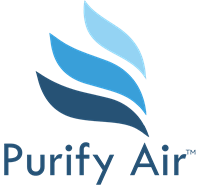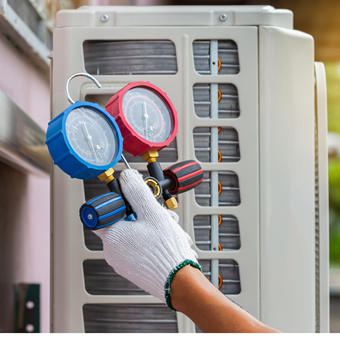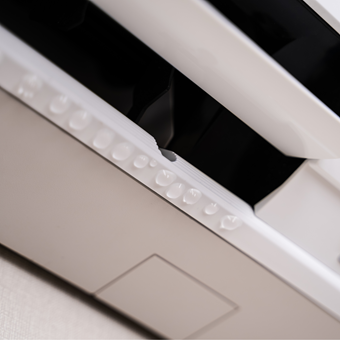Common Air Conditioner Issues in the Australian Climate and How to Prevent Them
Australia’s diverse climate, ranging from scorching summers to humid coastal regions, places heavy demands on air conditioning systems. Whether in homes, offices, schools, or commercial properties, air conditioners work overtime to maintain comfort. However, frequent use, combined with environmental factors, can lead to common AC issues that affect performance, efficiency, and indoor air quality.
Understanding these issues and taking proactive steps to prevent them can save you money on energy bills, avoid costly repairs, and ensure your air conditioner functions optimally year-round. Below are the most common air conditioning problems in Australian climates and how to prevent them.
Common Air Conditioner issues
Mould and Bacterial Growth in Air Conditioners
The Problem:
Australia’s warm and humid environment creates the perfect breeding ground for mould, bacteria, and fungi inside air conditioning systems. If left unchecked, these contaminants circulate throughout your home or workplace, leading to poor indoor air quality and health issues such as allergies, respiratory problems, and asthma flare-ups.
Prevention:
- Schedule professional air conditioning cleaning services at least once a year.
- Regularly clean air filters and replace them when necessary.
- Use a dehumidifier in high-humidity areas to reduce moisture buildup inside the unit.
- Keep the AC unit’s drain lines clear to prevent stagnant water.
CLOGGED OR DIRTY FILTERS
The Problem:
Dust, pet hair, and airborne pollutants accumulate in air filters over time, restricting airflow and forcing the AC system to work harder. This not only increases energy consumption but also reduces cooling efficiency and can lead to water leaking inside resulting in property damage to walls, flooring and furniture.
Prevention:
- Clean air filters every 1–3 months, depending on usage.
- Use high-efficiency particulate air (HEPA) filters for improved air quality found in many air purifiers.
- Schedule routine AC servicing to ensure filters and ducts remain clear.
REFRIGERANT LEAKS
The Problem:
Refrigerant is essential for cooling, but leaks can occur due to corrosion, wear and tear, or poor installation. Low refrigerant levels result in inadequate cooling, higher energy bills, and potential damage to the compressor. A sure sign of this is the coil icing up and the external copper pipes icing up.
Prevention:
- Have your AC unit inspected regularly by a professional technician.
- If you notice reduced cooling efficiency or hissing noises, call a professional immediately.
- Ensure proper installation and maintenance to prevent leaks.
UNIT NOT COOLING EFFICIENTLY
The Problem:
If your air conditioner is running but not effectively cooling, it could be due to dirty coils, blocked vents, incorrect thermostat settings, or refrigerant issues.
Prevention:
- Clean condenser and evaporator coils to ensure optimal heat exchange on both inside and outside units.
- Ensure vents and coils are not blocked by furniture or curtains, inside and outside.
- Set the thermostat to an appropriate temperature (22–24°C for cooling).
- Have a professional inspect refrigerant levels if cooling performance declines.
- Check and replace, if necessary, external copper pipe insulation which may expose the external copper pipes to the elements and direct sun.
AC UNIT SHORT CYCLING (TURNING ON AND OFF FREQUENTLY)
The Problem:
Short cycling occurs when an air conditioner turns on and off too frequently, leading to increased wear and tear, higher electricity bills, and inconsistent cooling.
Prevention:
- Ensure the thermostat is placed away from heat sources like direct sunlight or appliances.
- Check for blocked airflow, which may cause the system to overwork.
- You can try isolating the unit for 10 min and then un isolating (power back on) which may reset the electrical system and help resolve the issue.
- Have a professional inspect for refrigerant imbalances or faulty components.
HIGH ENERGY BILLS DUE TO INEFFICIENT AC PERFORMANCE
The Problem:
A poorly maintained AC system consumes more energy to provide the same level of cooling, resulting in higher electricity bills.
Prevention:
- Organise a Full Deep Clean of the whole units and clean air filters regularly.
- Schedule professional AC servicing to maintain efficiency.
- Invest in an energy-efficient model if your unit is outdated.
- Maintain a running temperature between 22 -24 degrees. Every degree in lower temperature increases you energy bill. If running on 16-18 degrees to make the room cool will cost a fortune. If the temperature does not drop the air con unit may well be the wrong size for that room.
WATER LEAKS FROM THE AC UNIT
The Problem:
A leaking AC unit can indicate a blocked drain line, frozen evaporator coils, or a faulty pump. Water damage can lead to mould growth and costly home repairs.
Prevention:
- Regularly check and clean drain lines to prevent clogs.
- Ensure proper insulation around coils and copper piping to prevent freezing.
- Call a professional if water pooling occurs near your unit.
- If the waste pipe is blocked, then the water from the condensation process can only go out the front of the unit.
- Check that the waist pipe is not connected to the external gutter down pipes. If the down pipes become blocked the water will take the least path of resistance and flow up the air con waste pipes and out of the wall unit and course major flooding and damage.
NOISY AIR CONDITIONER
The Problem:
Unusual noises such as rattling, buzzing, or grinding could indicate loose components, debris inside the unit, or motor issues.
Prevention:
- Ensure regular servicing to tighten loose parts (fins) and clear debris.
- If persistent noises occur, schedule a professional inspection, the fan brushes may need to be replaced.
- Keep outdoor AC units free from leaves, dirt, and pests.
- Make sure the unit is level and properly balanced to stop vibration.
THERMOSTAT ISSUES
The Problem:
A malfunctioning thermostat can cause temperature inconsistencies, leading to discomfort and inefficient cooling.
Prevention:
- Calibrate your thermostat regularly to ensure accurate temperature control.
- Ensure the thermostat stays dry and in its proper location.
- Replace old or faulty thermostats if they are not responding properly.
The Importance of Professional Air Conditioner Cleaning and Maintenance
Regular professional cleaning and maintenance are essential to ensuring your AC system functions efficiently and lasts longer. At Purify Air, we specialise in professional air conditioning cleaning services across Australia. Our trained technicians help households, businesses, schools, and commercial clients maintain clean, efficient, and mould-free air conditioning systems.
Why Choose Purify Air?
- Expert Technicians: Highly trained professionals using industry-approved cleaning methods.
- Thorough Cleaning: We remove mould, bacteria, and dust from filters, coils, and ducts.
- Energy Efficiency: Our services improve performance and reduce energy bills.
- Better Air Quality: Protect your family, employees, and customers from airborne contaminants.
Book Your Air Conditioner Cleaning Today!
Don’t wait for these common AC issues to arise—take proactive steps to maintain a clean and efficient system. Visit purifyairconcleaning.com.au to book a professional cleaning service and keep your air conditioning in top condition.
By addressing these common air conditioning problems and investing in regular maintenance, you can enjoy cleaner air, lower energy costs, and a more efficient cooling system. Stay ahead of AC troubles by scheduling professional servicing with Purify Air, ensuring comfort and health for your home, business, or commercial property year-round.












